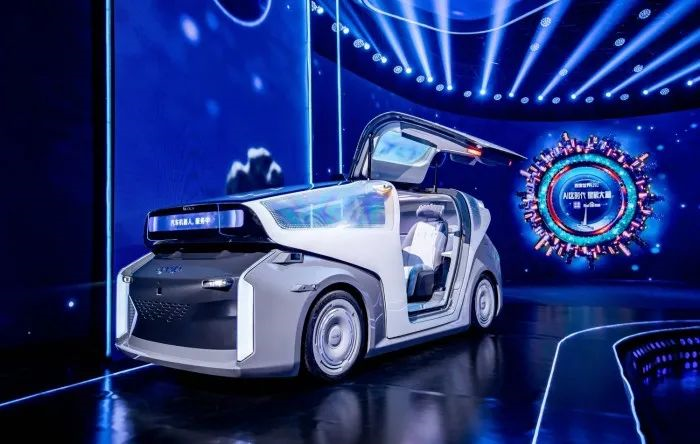Author: Mr.Yu
“When Li Yanhong and Sa Benning were chatting in the studio, and the unmanned car of Baidu lit up with scene lights, Mr.Yu almost thought he was watching “Tron: Legacy”.
On August 18th, 2021, at the Baidu World Congress 2021 jointly hosted by Baidu and CCTV News, Baidu CEO Li Yanhong said that “future cars will become “car robots”, and the “robot” form in the future will be very similar to a car. Car robots have these characteristics, which are automatic driving, intelligent assistance, loyal companionship, and self-study.”
Combined with the group interview of two Baidu intelligent driving business executives that afternoon, we are more certain that Baidu hopes to become a pioneer that can influence industry rules rather than become a host factory or supplier.
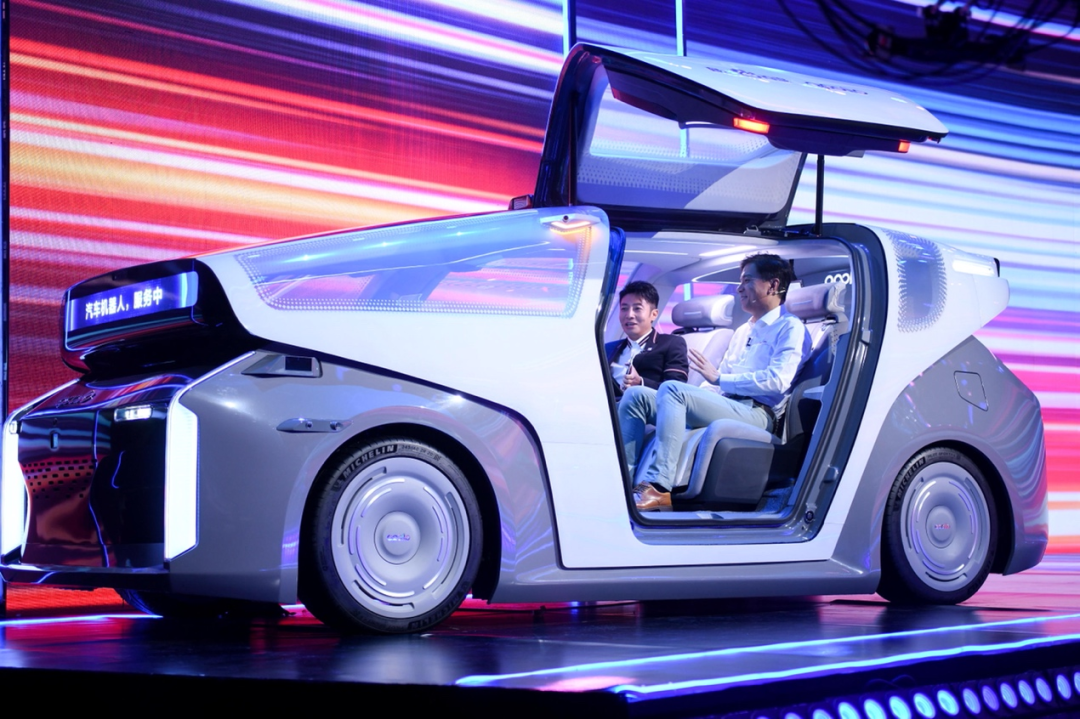
It’s a car, but not just a car
In Baidu’s definition, its car robots can serve people through three abilities:
First, it has L5 level automatic driving ability, which not only does not require human driving, but is also safer than human driving;
Second, it has multi-modal interaction abilities such as voice and face recognition, analyzes potential customer needs, and provides services proactively;
In addition, car robots also have self-learning and continuous upgrading abilities, and are intelligent bodies that serve various scenes.
“Car robots” embodies Baidu’s forward-looking judgment on the future development direction of cars. Baidu believes that with the continuous maturity and application of intelligent technology, cars will become more and more like robots.
Since the layout of automatic driving began in 2013, after 8 years of development, Baidu announced publicly that it has achieved automatic driving in complex urban road and highway scenarios.
In fact, in the general public’s cognition, human-machine driving will run through the entire process of intelligent travel. Whether the unmanned driving product demonstrated by Baidu at the conference still belongs to a technical verification model, at least we have seen that Baidu’s unmanned driving product can run on the street without various sensors, which is worth affirming.
As a side note, Mr.Yu has always thought that Canoo’s Lifestyle Vehicle model is already sci-fi enough, but he did not expect that before the rendering became reality, Baidu’s car robots have “overtaken” them.
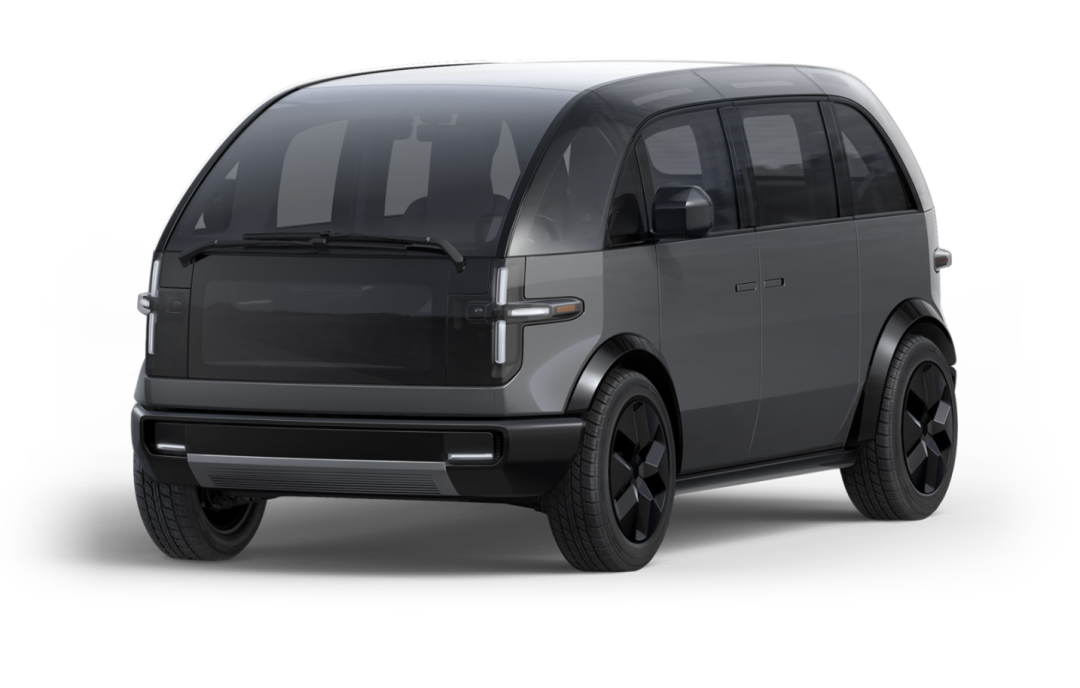 ## Translation
## Translation
Let’s get to the point. At the Ana Branch of the China Central Television, CCTV, host Wang Jia-ning and actress Jin Chen livestreamed the test ride experience of this car robot, as Baidu AI experience officers.
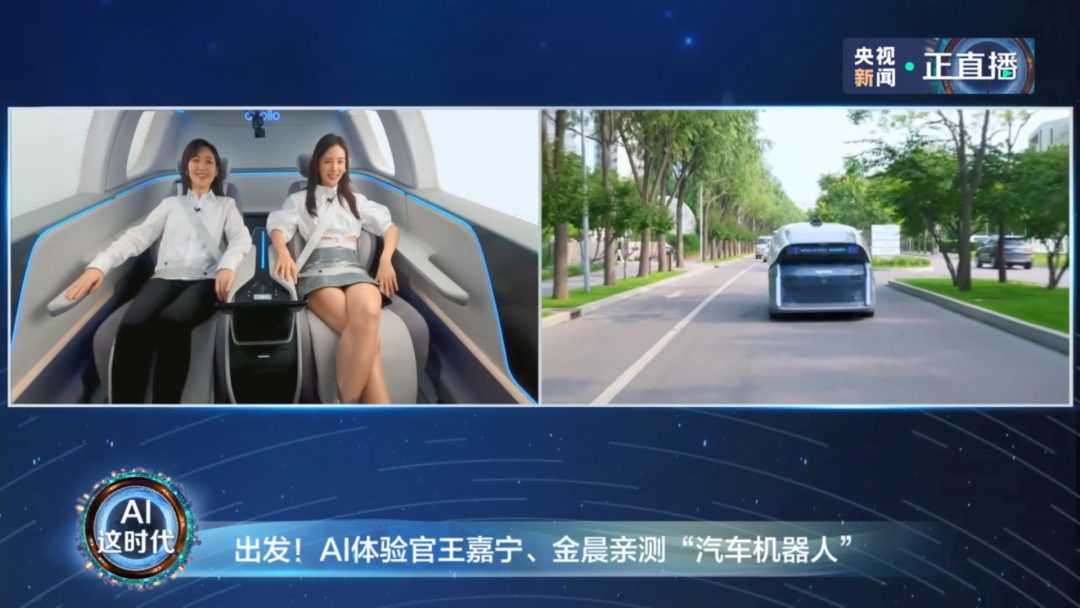
Whether it’s the automatic gullwing doors or the full glass roof, or the interior’s ultra-large curved screen, smart center console, variable light glass, zero gravity seats and other settings, they all reflect this sci-fi-looking car’s efforts to maximize sensory and cognitive experiences for passengers.
On the other hand, sensors related to autonomous driving are smartly hidden, making people feel that this “machine” deliberately dilutes all elements that may be associated with “driving” in the minds of riders.
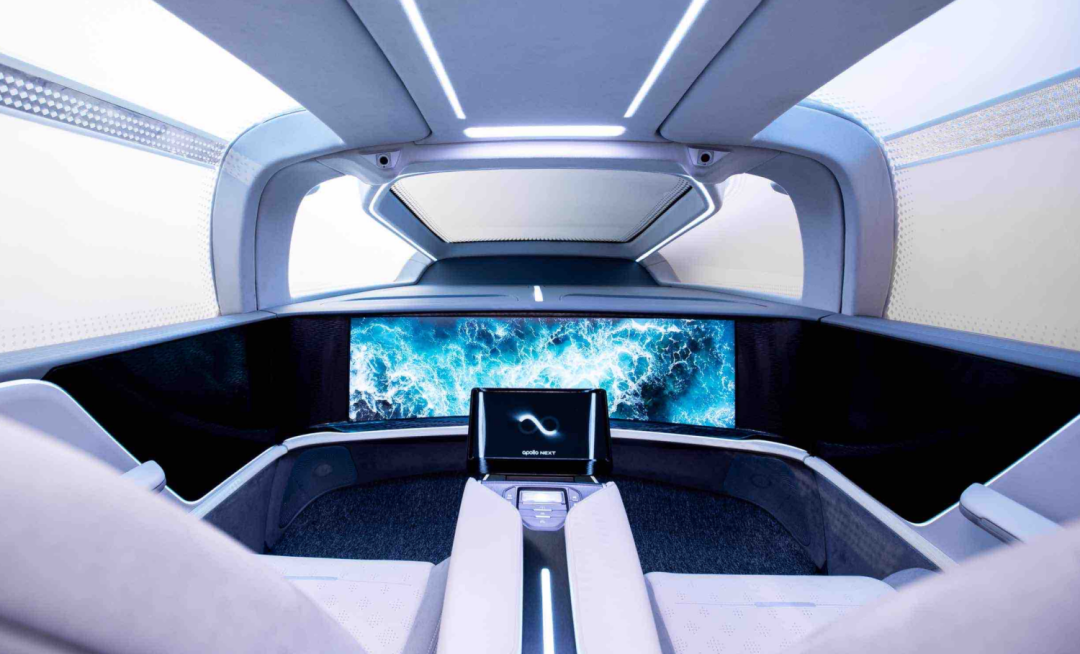
More than just being a car, it is more like a smart moving cabin. This is the product design that Baidu created for unmanned shared travel.
Leaving aside the concept, Baidu believes that “car robot” has three differences from the traditional car form: it can drive automatically, communicate freely, and learn.
First, the car robot does not require a person to drive it and it drives automatically.
Second, with the intelligent vehicle system, it can understand and talk to people, obey human commands and provide services, acting as an intelligent assistant to humans.
In addition, based on Baidu’s AI capabilities, the car robot also has the ability to learn and continuously update itself. With the help of artificial intelligence, it can think, make decisions, and can learn and upgrade itself continuously. The car robot is not only a car, but also the user’s driver, secretary, and butler.
Just running on electricity is not enough, so Baidu has also upgraded its platform.
From Apollo Go to Carrot Run
Whether it is Didi’s bet on autonomous driving shared travel, or Baidu Apollo Go, which has been running in surrounding areas for a considerable period of time, if it is not put into large-scale operation, it can only remain in the stage of technological verification.
But Baidu seems to think it’s time to take a step forward. At the conference, Baidu Apollo brought a brand-new upgraded unmanned vehicle travel service platform – Carrot Run.
Coincidentally, in the domestic subculture of anime, they often use the Japanese term for giant robots, “ロボ,” pronounced “Robo” to make fun of it by calling it “Carrot,” which is similar in pronunciation to “ロボ” and “robot” in English. In Mr.Yu’s view, this cute name bears some expectation of Baidu’s internal hopes for intelligent shared travel.
We noticed that today, Li Yanhong has been mentioning “service” all the time, so we also slightly understood the significance of Carrot Run.Inheriting the two-year operational practices of Apollo Go, Baidu takes the next step towards the scaled commercialization of its business operations and diversified value-added services to the public.
The launch of the Luobo Kuaipao platform not only serves as a further step toward commercializing the Baidu’s autonomous driving- sharing economy operations, but also bears the responsibility of narrowing the gap between the society and unmanned driving products.
During the group interview in the afternoon, Baidu’s Vice President and General Manager of the Autonomous Driving Technology Department, Wang Yunpeng, and Baidu’s Vice President of the Intelligent Driving Business Group and Chief Safety Operations Officer, Wei Dong, were interviewed by multiple media outlets.
Wearing their respective Baidu Apollo-themed Polo shirts, the two of them presented contrasting styles that left a lasting impression: Wang Yunpeng was always soft-spoken and gentle, while Wei Dong, who joined Baidu Apollo from First Automotive Works, exuded confidence and spoke like a bell.
According to Baidu’s first-party data, as of the first half of 2021, Baidu Apollo’s autonomous driving ride-hailing service has served over 400,000 passengers and tested over 14 million kilometers autonomously. The number of autonomous driving patents accum latently surpassed 2,900, and has opened manned transportation services in Beijing, Guangzhou, Changsha, and Cangzhou.
These figures provide a solid foundation and confidence for Baidu to launch the next stage of commercial operations at scale.
To better connect automated driving and ride-sharing, the upgrade from Apollo Go to Luobo Kuaipao is more like a brand upgrade. Through this upgrade, Baidu Apollo optimizes underlying logic around normalized travel services and accumulates experience and optimizes processes through further scaled up operations.
Wei Dong believes that compared to the current system, which predicts demands based on data, the system of Luobo Kuaipao will overturn the ride-sharing industry. Since unmanned driving does not have to consider driver fatigue and other factors, unmanned cars on the Luobo Kuaipao platform can dispatch and schedule orders in advance, making it more efficient than circulating traditional ride-sharing.Currently, Baidu is promoting the commercial trial of Robotaxi in multiple cities, which means the exploration of business models, market positioning, and pricing mechanisms is now in front of us. Baidu hopes to create a sustainable business cycle while respecting basic business logic and cost structure. As for the specific charging model, it is still under discussion.
Previously, Baidu announced its established goal of opening 30 cities by 2023 and deploying about 3,000 autonomous driving fleets on this basis. Currently, it is highly likely that Baidu will continue to expand its scale and deploy autonomous driving operation networks in key cities and unique cities across the country following the established plan.
We all know that intelligent driving and shared travel is still an innovative business model globally. For China, Wei Dong stated that Baidu Apollo is actively calling for policy support from local governments, including relevant trial methods with intelligent driving and shared travel. For Baidu, “hitting the road” is both a test ground for verifying technological capabilities and a track for verifying business models.
Before investing in large-scale commercial operations, Baidu has been cautiously promoting the operation of related technology products in real-world environments. Now, everyone realizes that only by leaving the laboratory can Baidu’s unmanned vehicles become true “cars.”
We have noticed that Baidu Apollo has appeared multiple times in reports on the autonomous driving and travel markets from major consulting firms both domestically and abroad in recent years. Recently, in the report “China Autonomous Driving Market and Future Travel Market Outlook” released by IHS Markit, IHS combined the current status of the autonomous driving market with national-level policy guidance, making relevant predictions on the penetration rate of the autonomous driving market and future travel markets, among which Baidu Apollo stands out.
The report pointed out that the market size of the entire shared travel market will reach 2.25 trillion yuan by 2030, with a compound growth rate between 20% to 28%. In the shared travel market, Robotaxi will account for more than 60%, and the market size will exceed 1.3 trillion yuan. This also means that the future travel market will shift towards unmanned vehicle service scenarios.
So, Mr. Yu proposed to Wang Yunpeng to share some data from the IHS report.# Wang Yunpeng expects Robotaxi will become a public infrastructure-like market in the future
Wang Yunpeng expressed that the Robotaxi market may become a public infrastructure-like market in the future. There will not be a monopoly in the entire industry, but two to three leading companies will play important roles. Top players may receive about 40% of the market share.
According to statistics, as of May 2021, there were 1.394 million commercially operated taxis and about 1.5 million active ride-hailing vehicles in China. Wang Yunpeng believes that in the future, the entire shared unmanned vehicle market will reach a scale of 1 to 1.5 million vehicles. Baidu Apollo is confident to play this role and even occupy more than half of the market share.
Under the orderly management of government policies and regulations, Baidu’s intelligent driving safety and cost advantages will become Baidu’s largest core competitiveness in the market.
“To sum up, it should be between 560 billion yuan and 650 billion yuan,” added Wang Yunpeng.
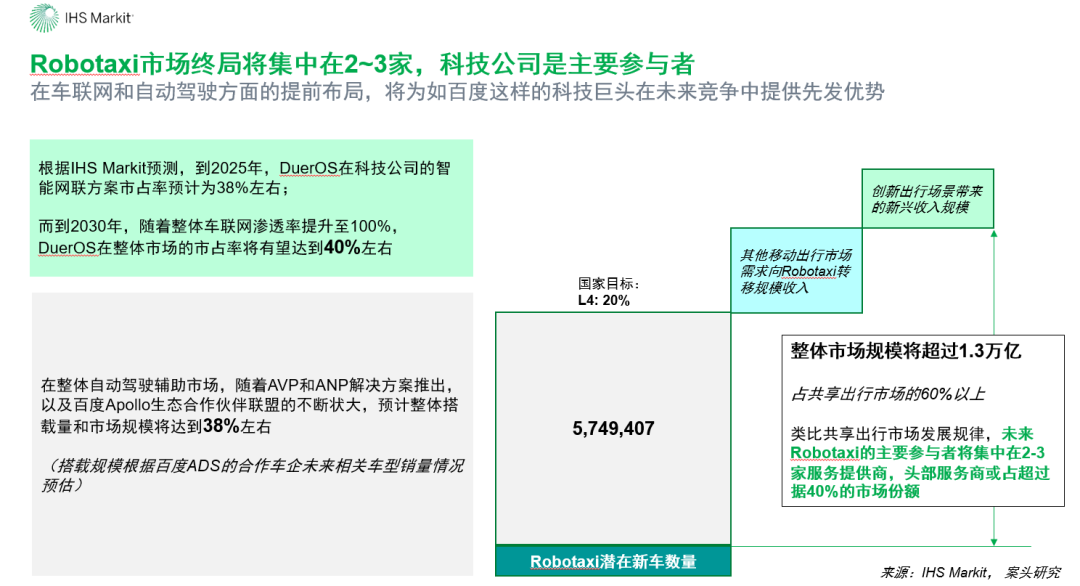
This article is a translation by ChatGPT of a Chinese report from 42HOW. If you have any questions about it, please email bd@42how.com.
